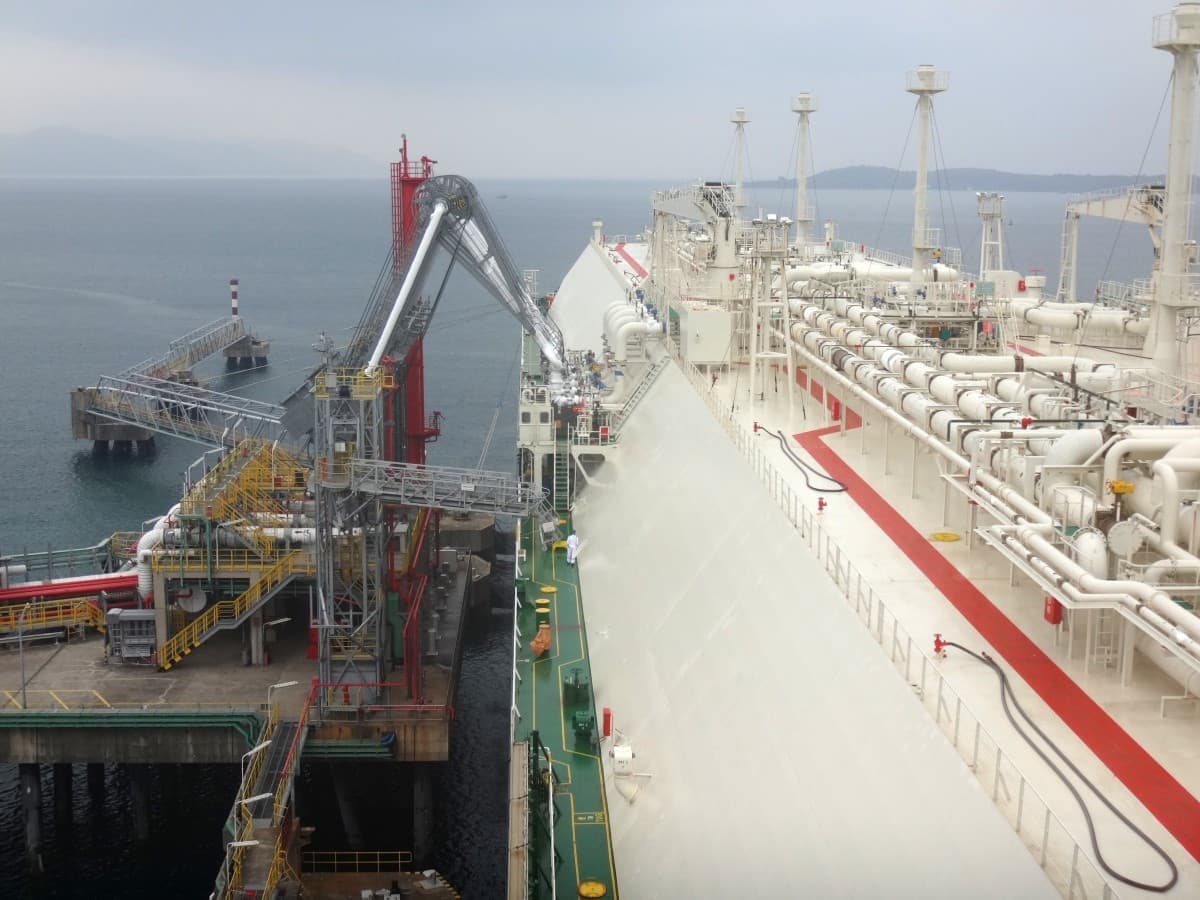Business
Germany Accelerates LNG Import Terminal Construction for Future Needs

Germany is ramping up its construction of liquefied natural gas (LNG) import terminals, setting an ambitious target of over 70 million tons annually. This shift comes in the wake of a previous EU-led initiative that sought to reduce reliance on Russian pipeline gas imports, a decision amplified by the ongoing war in Ukraine. The country, once focused on transitioning to renewable energy sources for a net-zero future, is now embracing LNG as a long-term solution to meet its energy demands.
The decision to invest heavily in LNG infrastructure marks a significant change in Germany’s energy strategy. According to a recent overview published by Reuters, Germany is not only building new terminals but also considering imports of LNG from various sources, including Russia. This pivot highlights the complexities of energy supply in Europe, where immediate needs often clash with long-term sustainability goals.
As of now, Germany operates several LNG terminals, with plans for more in the pipeline. These developments are partly driven by the necessity to secure energy supplies in an increasingly volatile geopolitical landscape. With the ongoing conflict in Ukraine, the urgency to diversify energy sources has become paramount, prompting Germany to invest in infrastructure that can handle a greater volume of LNG.
The construction spree is indicative of a broader trend within the European Union to enhance energy security. While the EU had initially sought to phase out reliance on Russian energy due to geopolitical tensions, the realities of energy demands have led many countries to reconsider their positions. Germany’s strategic moves reflect this balancing act between immediate energy needs and long-term climate commitments.
Germany’s LNG terminal expansion is expected to play a crucial role in stabilizing energy supplies not just for itself, but for the entire region. As the country enhances its capacity to import LNG, it aims to ensure a more resilient energy framework that can adapt to fluctuating global markets and supply challenges.
The investments in LNG infrastructure highlight the shifting dynamics in Europe’s energy sector. As countries weigh their options in response to the ongoing crisis, Germany’s actions serve as a significant indicator of the continent’s energy future. With the looming goal of achieving net-zero emissions, the nation faces the challenge of balancing fossil fuel reliance with its commitment to renewable energy sources.
In conclusion, Germany’s foray into extensive LNG terminal construction signifies a critical moment for energy policy in Europe. By targeting an annual import capacity of over 70 million tons, the country is positioning itself as a key player in the global LNG market, even as it navigates the complexities of transitioning to a sustainable energy future.
-

 Health3 months ago
Health3 months agoNeurologist Warns Excessive Use of Supplements Can Harm Brain
-

 Health3 months ago
Health3 months agoFiona Phillips’ Husband Shares Heartfelt Update on Her Alzheimer’s Journey
-

 Science1 month ago
Science1 month agoBrian Cox Addresses Claims of Alien Probe in 3I/ATLAS Discovery
-

 Science1 month ago
Science1 month agoNASA Investigates Unusual Comet 3I/ATLAS; New Findings Emerge
-

 Science4 weeks ago
Science4 weeks agoScientists Examine 3I/ATLAS: Alien Artifact or Cosmic Oddity?
-

 Entertainment4 months ago
Entertainment4 months agoKerry Katona Discusses Future Baby Plans and Brian McFadden’s Wedding
-

 Science4 weeks ago
Science4 weeks agoNASA Investigates Speedy Object 3I/ATLAS, Sparking Speculation
-

 Entertainment4 months ago
Entertainment4 months agoEmmerdale Faces Tension as Dylan and April’s Lives Hang in the Balance
-

 World3 months ago
World3 months agoCole Palmer’s Cryptic Message to Kobbie Mainoo Following Loan Talks
-

 Science4 weeks ago
Science4 weeks agoNASA Scientists Explore Origins of 3I/ATLAS, a Fast-Moving Visitor
-

 Entertainment4 months ago
Entertainment4 months agoLove Island Star Toni Laite’s Mother Expresses Disappointment Over Coupling Decision
-

 Entertainment3 months ago
Entertainment3 months agoMajor Cast Changes at Coronation Street: Exits and Returns in 2025









